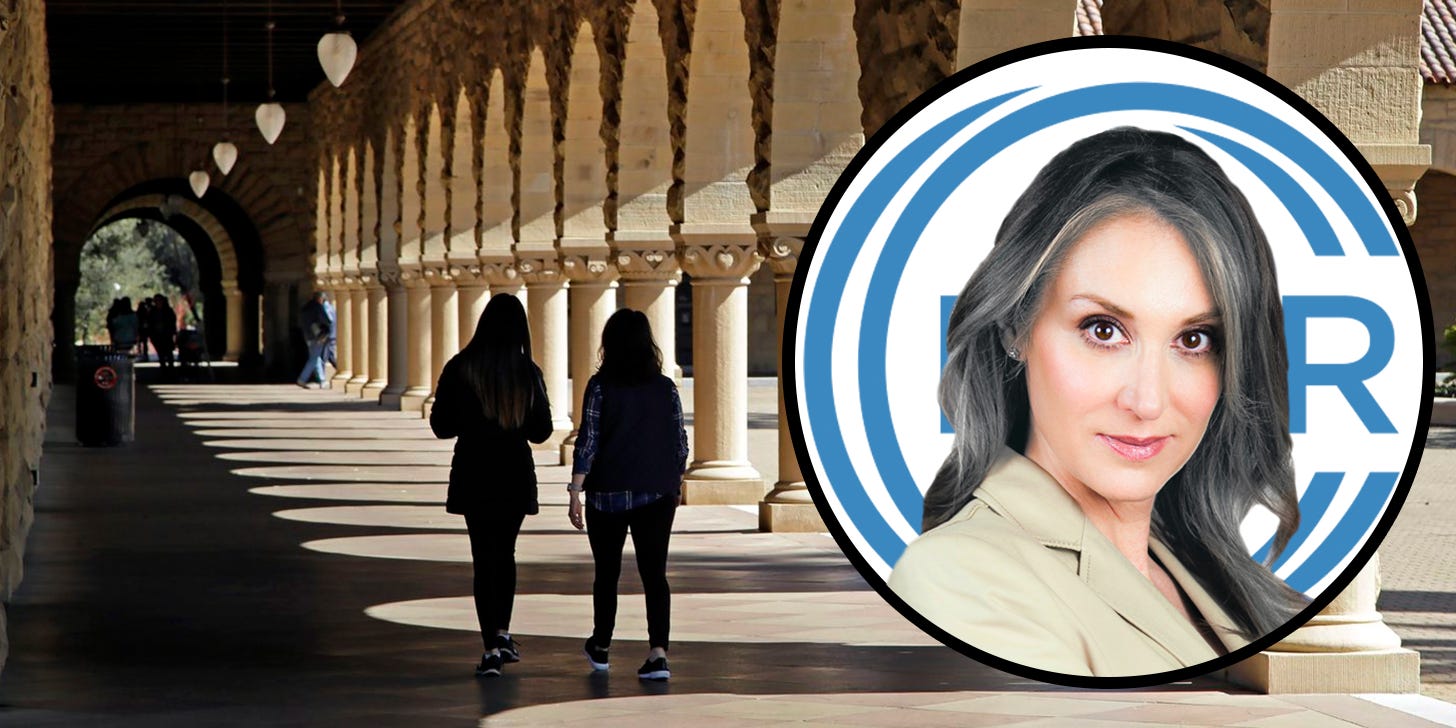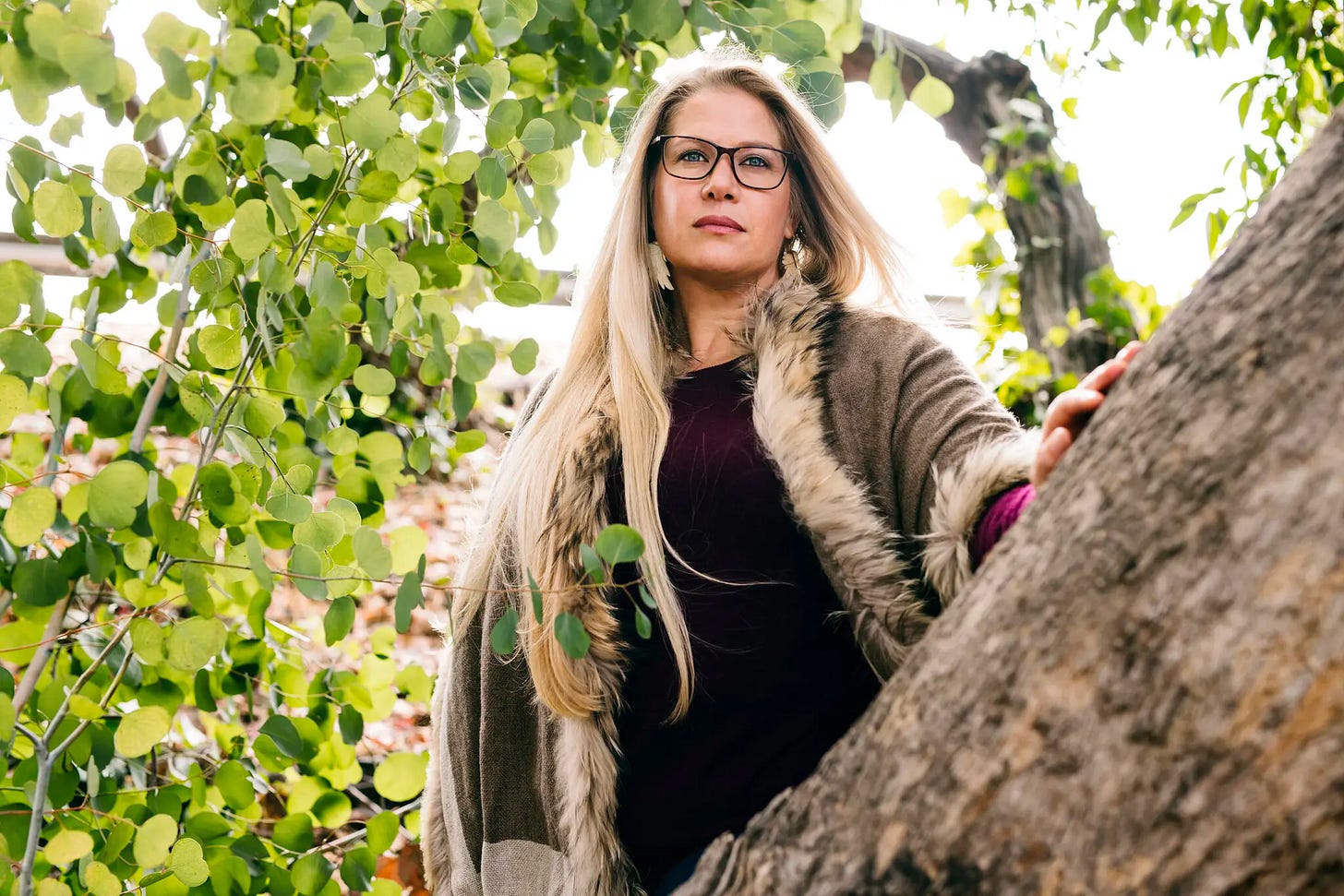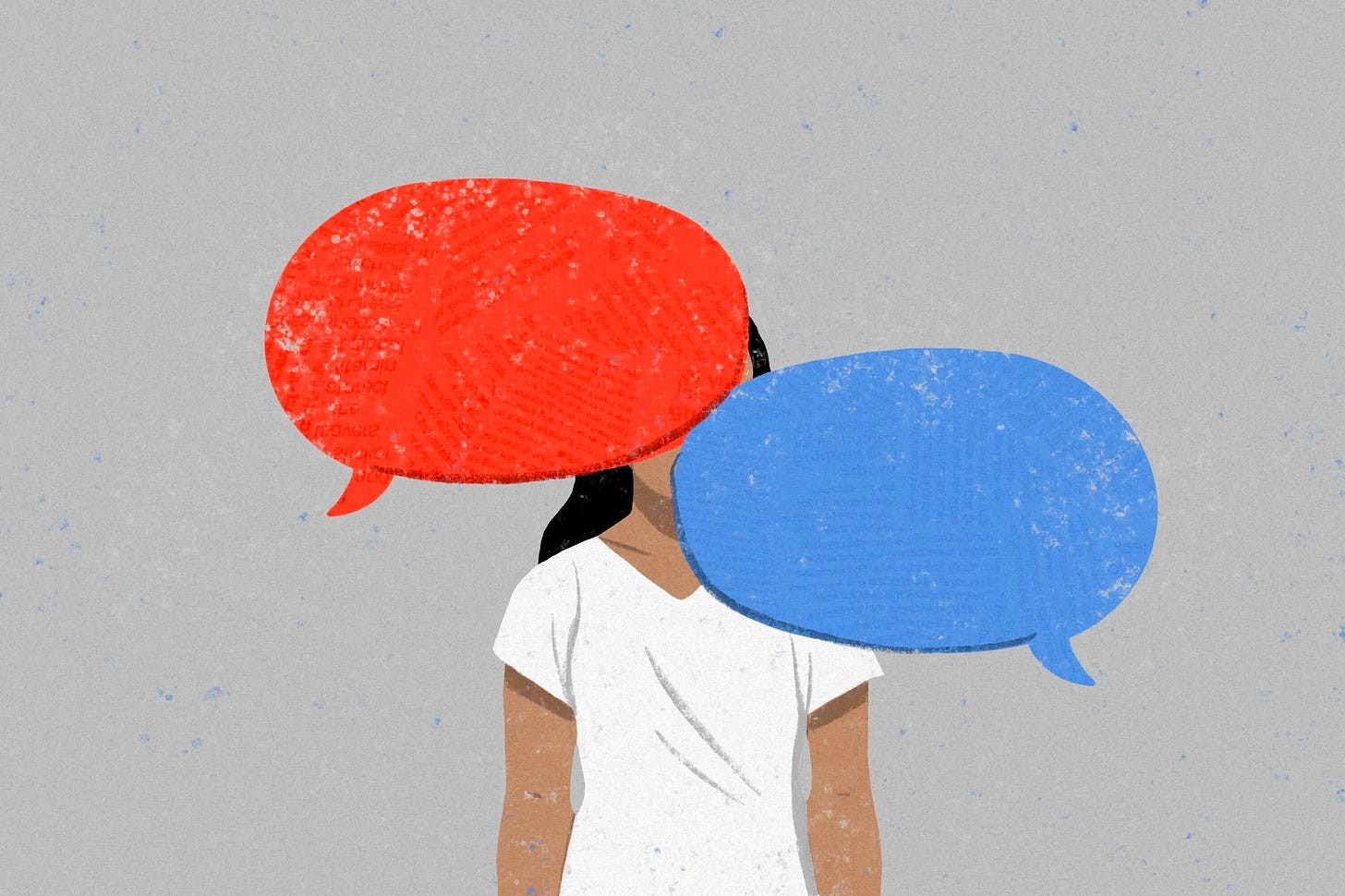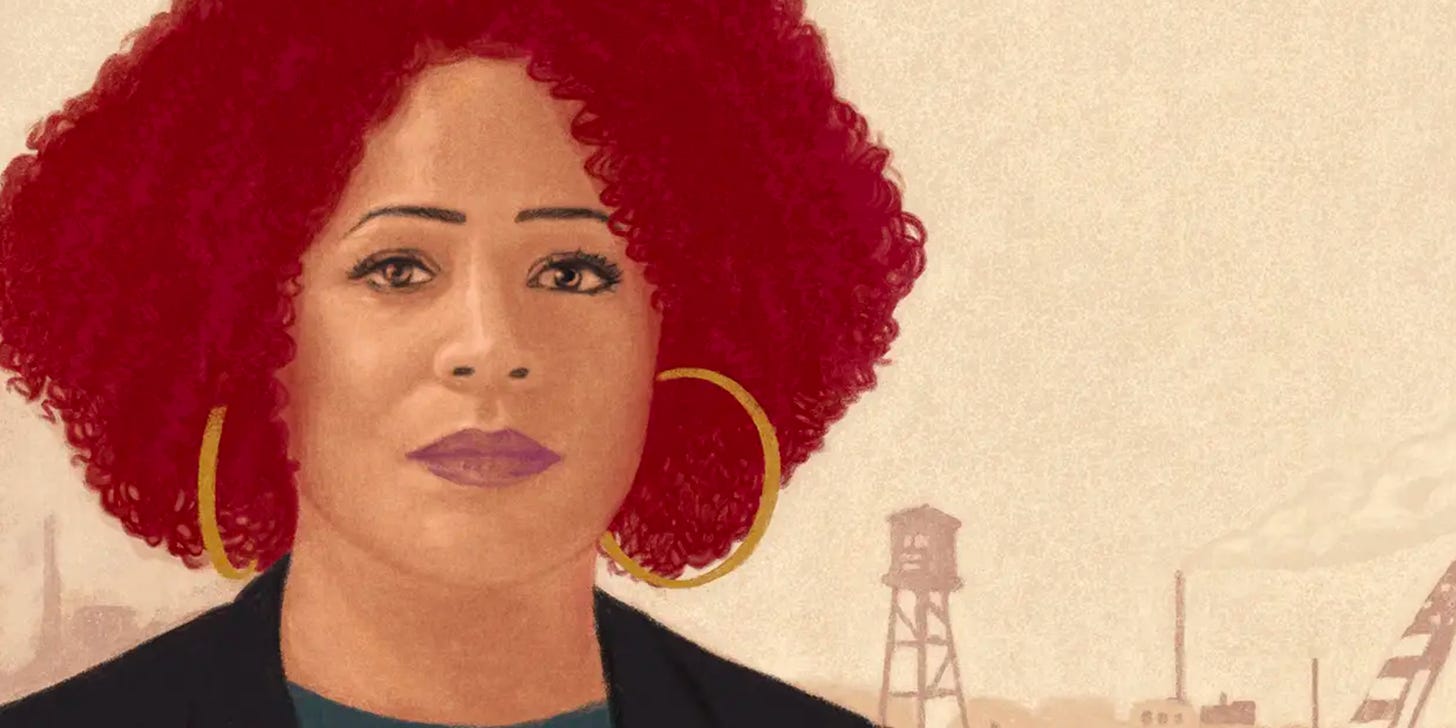The radical anti-racism of Christopher Hitchens
This week on our Substack, Matt Johnson writes about the late Christopher Hitchens, and the ways he felt “identity politics was a hindrance, not an asset, to the cause of real social justice.” Johnson goes on to describe what he calls Hitchens’ “radical universalism.”
Hitchens was consistently critical of identitarianism of all stripes. He had a keen understanding of the ways in which right-wing demagogues could appeal to white Americans’ anxieties and prejudices—insisting that Barack Obama produce a birth certificate, for instance (one of Donald Trump’s political preoccupations at the time). As Hitchens put it, these demagogues “need and want to sublimate the anxiety into hysteria and paranoia. The president is a Kenyan. The president is a secret Muslim.” This was identity politics, too—a particularly noxious version of it. And nobody could accuse Hitchens of ignoring the ways that some segments of Christian America inflict their identitarian demands on the rest of the country.
An ‘us’ vs. ‘them’ mentality on campuses turns potential friends into allies — or enemies
For the Boston Globe, FAIR Advisor Pamela Paresky, along with Samuel J. Abrams, write about the “loneliness epidemic” on campus. They note that “it is no coincidence that compared with Republican students, a much larger share of Democrats report that they would ‘probably not’ or ‘definitely not’ room with someone who didn’t vote for their preferred candidate (62 percent vs. 28 percent),” and that the “primary reason students say they don’t express their authentic views, according to a Heterodox Academy survey, is fear of peers taking offense. Many even worry that sharing their thoughts will cause others ‘harm.’”
Clearly this undermines viewpoint diversity on campus. But perhaps the pervasive experience of keeping their thoughts to themselves also helps explain why more than two-thirds of students in the NBC poll reported “intense, persistent, and excessive worry and fear about everyday situations.” Common campus practices may be engendering mutual fear and distrust, impeding interpersonal connection, and preventing the development of meaningful relationships — the very things that buffer against feelings of isolation and loneliness.
Stop Making Asian Americans Pay the Price for Campus Diversity
For the New York Times, FAIR Advisor John McWhorter writes that “today, increasing diversity may mean giving preferential treatment to some Black and Latino students who otherwise might not qualify for admission.” He also notes the issues that arise from this practice which, “whether intended or not, has had the effect at Harvard…of artificially keeping down the number of students of Asian descent.”
Of course, no one explicitly says Harvard has too many Asians, but the parallel between old-school justifications for keeping a student body from being too Jewish and a process that keeps it from being too Asian are discomfiting. According to the plaintiffs’ data, Asian American applicants were 25 percent more likely than whites to be rated, dismissively, as “standard strong,” meaning that they’re academically excellent but merely in a garden variety way for Harvard applicants. They were also shown to be rated by admissions officers as less personable than applicants of other races with similar applications. This is alarmingly close to the kinds of prejudices held about Jewish students in the old days.
Whose Child Is It Anyway?
For the Chalkboard Review, FAIR Advisor Robert Pondiscio writes that while “the children we teach are our students, our scholars, or our class…they have parents or caregivers who will insist, quite rightly, that our students are their kids.” Pondiscio notes that “the distinction is not mere pedantry,” and there are real consequences to thinking otherwise.
Consider the tensions surfaced last week when Virginia released guidance to its schools insisting they must “keep parents fully informed about all matters” related to their children’s health and psychological development, and that schools may not “encourage or instruct teachers to conceal material information about a student from the student’s parent, including information related to gender.” It should have been uncontroversial for the state’s Department of Education to note its new guidance “fully acknowledges the rights of parents to exercise their fundamental rights granted by the Fourteenth Amendment of the U.S. Constitution to direct the care, upbringing, and education of their children.” But that’s not how it landed either among educators or the media. “This is unacceptable,” tweeted Jason Kamras, Richmond’s school superintendent. “Public schools should be welcoming and inclusive, not exclusionary. The very least we can give our students is dignity and respect. This action takes it away.” In the New York Times’ telling, Virginia is “reversing school protections for transgender students.”
Sundance Liked Her Documentary on Terrorism, Until Muslim Critics Didn’t
For the New York Times, Michael Powell writes about documentary filmmaker Meg Smaker and her film Jihad Rehab, and the controversy surrounding it after it screened at Sundance and “Arab and Muslim filmmakers and their white supporters accused Ms. Smaker of Islamophobia and American propaganda. Some suggested her race was disqualifying, a white woman who presumed to tell the story of Arab men.”
Sundance leaders reversed themselves and apologized.
Abigail Disney, a grandniece of Walt Disney, had been the executive producer of “Jihad Rehab” and called it “freaking brilliant” in an email to Ms. Smaker. Now she disavowed it.
The film “landed like a truckload of hate,” Ms. Disney wrote in an open letter.
Ms. Smaker’s film has become near untouchable, unable to reach audiences. Prominent festivals rescinded invitations, and critics in the documentary world took to social media and pressured investors, advisers and even her friends to withdraw names from the credits. She is close to broke.
In the End, Only Autobiography Will Be Allowed
For his Substack, Stuff Happens, a writer going by the name History Boomer writes about the case of Meg Smaker, and “the crazy idea that certain topics should only be discussed or portrayed by people with the appropriate characteristics,” which is “a smothering approach that would set limits on art based on skin color and background when the only limit to art should be the artist’s imagination.”
This way lies madness. Taken to its logical conclusion, “stay in your lane” thinking will result in filmmakers only making films about themselves and only Barack Obama will be acceptable to portray Barack Obama. We must fight the purity police on all sides who want to resegregate our culture. Meg Smaker has as much right to make a film about four Muslim men (assuming she approaches the subject with care and integrity) as a black filmmaker has to create her own vision of Romeo and Juliet. We are all citizens of this world, hungry students learning from her intertwined cultures.
Perspective: A genuine independence
For Deseret News, Robert P. George writes that while “there is a widely believed myth that young people — especially college students — are ‘natural rebels’ and ‘nonconformists’…Nothing could be further from the truth.” Professors and parents can, however, “help them become truly independent thinkers.”
There is one thing all professors can and should do — though even this takes a bit of courage these days — that is, make clear in writing (on the course syllabus, for example) that students in their classes are permitted and, indeed, encouraged to think for themselves and speak their minds, even when their views dramatically contradict campus orthodoxies. Let students know that free-thinking and nonconformity are welcome in your classes and will certainly not be punished.
Braver Angels Aims to Mend Our Polarized Relationships
For Seattle Met, Marcus Harrison Green profiles “Seattle journalist and author of I Never Thought of It That Way” Mónica Guzmán, and how she and the organization she works for, Braver Angels, “[convene] Americans of all political stripes to foster dialogue, understanding, and civility around highly contentious issues facing our nation, from gun control to race relations.”
Attempting to reunify the American “household,” the organization uses a family counseling framework to locate common values, eliminate presumptive stereotypes, and prioritize curiosity over judgment. Its depolarization workshops, moderated debates, monthly meetings, book clubs, and film series span 77 nationwide chapters, including two in Washington state.
The Making of Nikole Hannah-Jones
For Tablet, Marc Weitzmann examines “how Americans increasingly find themselves in this odd and idiosyncratic predicament: splitting into opposing camps that are more or less aware of their deliberate deviations from the truth, yet clinging desperately to ever more extreme and factional positions of unreality” through a profile of The 1619 Project’s lead author, Nikole Hannah-Jones.
…what could better embody these internal American contradictions than the story of the author of The 1619 Project herself—the tirelessly careerist daughter of a civil rights-activist white mother and a troubled Black father; the formerly quiet, bookish, Midwestern, working-class girl who became one of the most powerful and influential figures at The New York Times, where she often speaks with a Southern accent strikingly displaced from the region in which she grew up; the would-be scholar of American slavery for whom history is as much about “narrative,” “memory,” and “the present” as it as about truth or “the past”; the journalist driven by a seemingly outdated faith in the power of the written word, but whose output as a public intellectual has been largely distributed through the unforgiving medium of Twitter, where her sometimes cruel, often petty tweets come under the name of Ida Bae Wells.
Want to help advance civil rights and liberties for all, and promote a common culture based on fairness, understanding, and humanity? Sign up for a free subscription today!
Join the FAIR Community
Become a FAIR volunteer or to join a FAIR chapter.
Join a Welcome to FAIR Zoom information session to learn more about our mission, or watch a previously recorded session in the Members section of www.fairforall.org.
Take the Pro-Human Pledge and help promote a common culture based on fairness, understanding, and humanity.
Join the FAIR community to connect and share information with other members.
Share your reviews and incident reports on our FAIR Transparency website.














Most of the articles I tried to read were behind paywalls. Also, when I hover over the link, the redirect URL conceals the publisher's ID and hence the paywall status. Do they get ad revenue for clicks to the page followed by immediate tab closure? If so, some advertiser is not getting value for money.
I am growing weary of this and am moving toward unsubscribing from this newsletter. I'd rather remain blissfully ignorant of the existence of these articles than to know that I am being kept ignorant by paywalls and an educator's salary.
I would love to read John McWhorter’s article, but linking to articles behind another publication’s paywall makes that impossible.